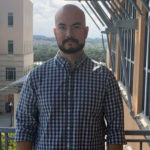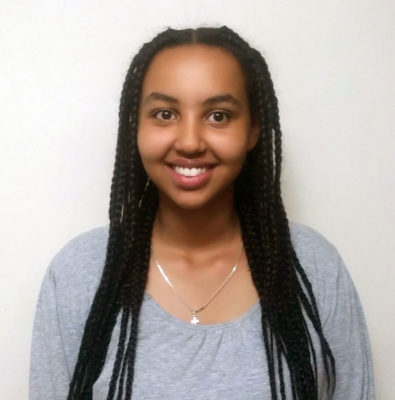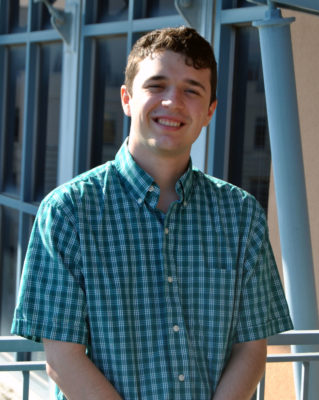Posted on October 7, 2021 by Wendy Frost
“The program is designed to cultivate research interest and to instill research acumen in outstanding undergraduate students in the college,” said Juan Manuel Sanchez, associate dean of graduate studies and research in the college. “We will equip the students with skills that will prepare them for research-based graduate programs such as the Ph.D.”
The inaugural fellows are Fernando Alvarez, a cyber security and information systems major; Elshaday Dandena, an economics major; and Victor Feagins, a statistics and data science major.
Alvarez Fellows will learn about the nature and scope of research conducted in a variety of business disciplines and participate in experiential learning activities. First, students study research methods as part of a three-course sequence that results in a business research competency. Working with faculty mentors, the students will also execute a personal research project with the goal of writing and submitting a paper to a peer-reviewed journal or academic conference.
Working on a research project in the college’s IoT Forensics Lab this summer, Fernando Alvarez got his first introduction to research. This fall he will work with Oren Upton, a UTSA research scientist, on a project testing Ring doorbells for forensic artifacts, which would be personal information that is being stored in the device.
“This experience has opened my eyes to different fields in forensics,” said Alvarez, who aspires to work with a government agency upon graduation. “Classes provide you with the theory, but now I’m able to put that theory to practice. It is a great honor to be one of the first fellows.”

Business Honors student Elshaday Dandena completed the research courses as part of the college’s honors program curriculum. Working with Sanchez and Eric Bachura, assistant professor of information systems and cyber security, she is researching business influencers to determine if their suggestions influence the stock market. Using data scraping technology, she is analyzing transcripts from YouTube videos as part of her data collection process.
“UTSA has blessed me with so many opportunities,” said Dandena, an international student from Ethiopia. “This program will give me a leg up when I go to graduate school. I want to continue my education and earn an MBA at UTSA.”
Victor Feagins has participated in numerous research-based internships and projects while at UTSA including experiences in Boston and Washington, D.C. “I learned the nuances of working with real data, and I gained practical skills through these programs,” said Feagins.
Working now on his own personal research, he is looking at how charter school competition affects public schools.

“I’m leveraging the experiences of my mentors,” said Feagins who is also a member of the UTSA Education Pathways Program. “My plans are to look at graduate school and Ph.D. programs, particularly in quantitative fields.”
The inaugural fellows will participate in a one-year program and receive $10,000 in stipends. They were chosen based on their academic excellence, demonstrated research potential, personal interest and motivation.
When the program is fully implemented, it will be a two-and-a-half-year program beginning in the spring of the sophomore year. Additional program components will include presenting research at a college-level Pre-Ph.D. symposium and attending national research conferences. The college will be recruiting juniors and sophomores this spring to round out the program.
“The college is proud to serve undergraduate students of this caliber through this new research program,” said Pamela C. Smith, interim dean of the college and Bodenstedt Chair. “We are inspiring students to engage in the discovery of new knowledge that will ultimately lead to innovation.”

